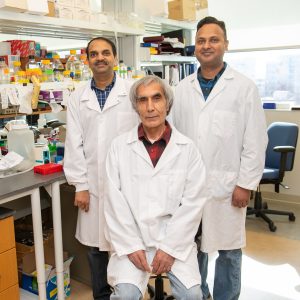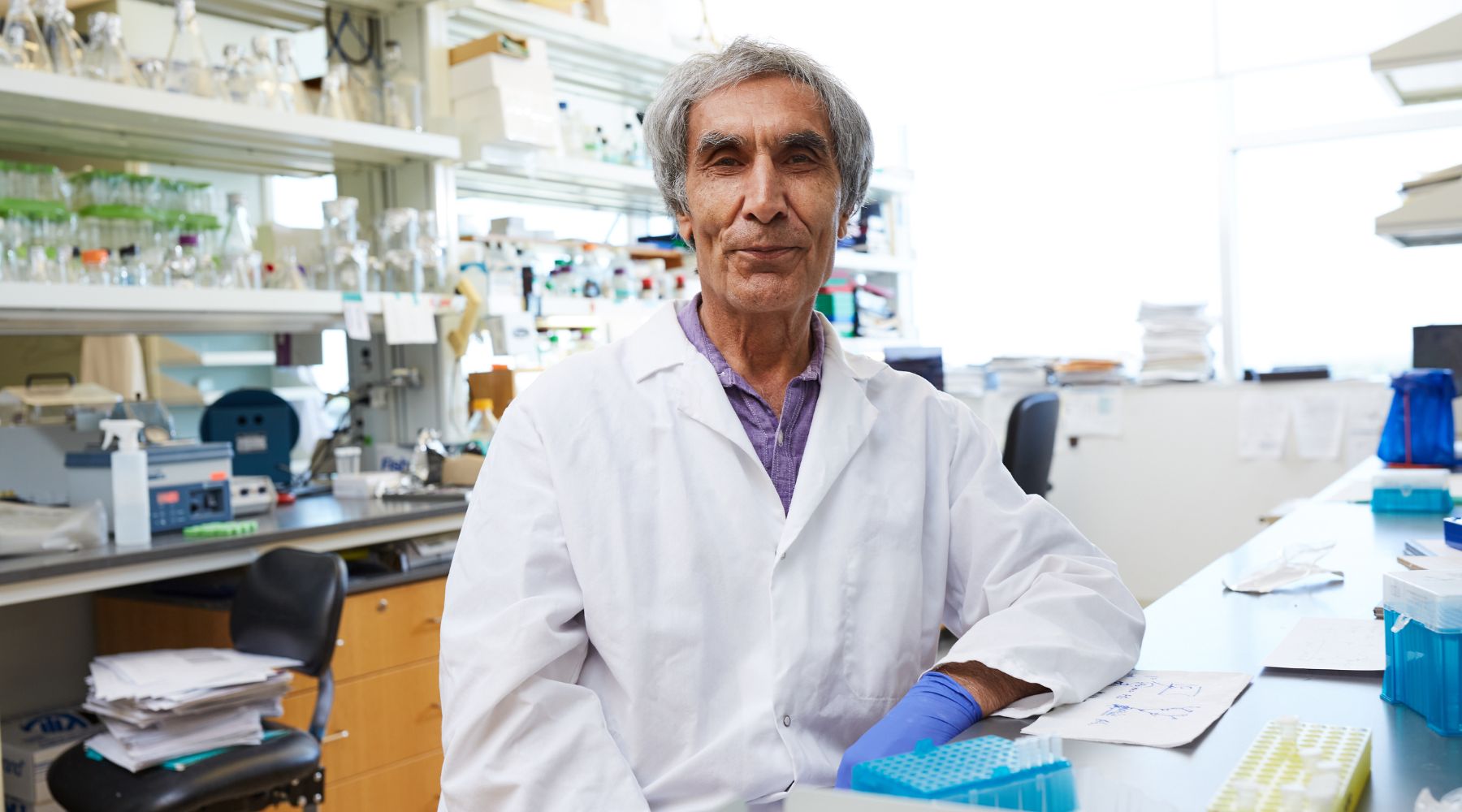The National Institutes of Health has awarded Oklahoma Medical Research Foundation scientist Ray Rezaie, Ph.D., $1.7 million to continue his study of the intricate mechanisms that govern blood clotting and inflammation.
With the four-year grant, Rezaie will explore how three molecules interact to regulate proper blood flow and inflammation when a blood vessel is damaged.
An enzyme in plasma called thrombin has such strong clotting properties that stops bleeding when the vessel is damaged. However, if not appropriately regulated, thrombin can cause excessive clotting, or thrombosis. It can lead to a heart attack, stroke, organ damage and even death.
“That’s where a molecule called thrombomodulin steps in to regulate thrombin,” Rezaie said. “It binds to thrombin like a magnet and prevents abnormal clotting and inflammation.”

This interaction triggers a chain reaction that converts another key plasma enzyme called Protein C to its activated form (APC), which prevents blood clot formation and inflammation.
In earlier experiments, Rezaie and OMRF scientists Indranil Biswas, Ph.D., and Hemant Giri, Ph.D., discovered that APC protects the peritoneum, a membrane that insulates the abdominal organs, against inflammatory scarring commonly associated with one type of kidney dialysis.
Progressive scar tissue buildup on the peritoneum, or peritoneal fibrosis, frequently occurs within two years after dialysis begins.
“There is no treatment for this condition,” Rezaie said. “With further study, small doses of APC could prove to be life-saving for people with peritoneal fibrosis.”
With the new grant, Rezaie will use insights gained from his lab’s discovery to address a broader mystery: how thrombin, thrombomodulin and APC work together in blood vessels throughout the body to prevent inflammation and thrombosis. Unlocking that mystery could lead to new medications for heart attack, stroke and sepsis.
“In many ways, our understanding of human biology remains in its infancy,” said scientist Lijun Xia, M.D., Ph.D., who leads OMRF’s Cardiovascular Biology Research Program. “Dr. Rezaie’s experiments aim to incrementally increase our knowledge by solving a puzzle involving one of the body’s complex chain reactions.”
Rezaie’s grant, 2R01HL101917-13, is funded by the National Heart, Lung, and Blood Institute, part of the NIH.



